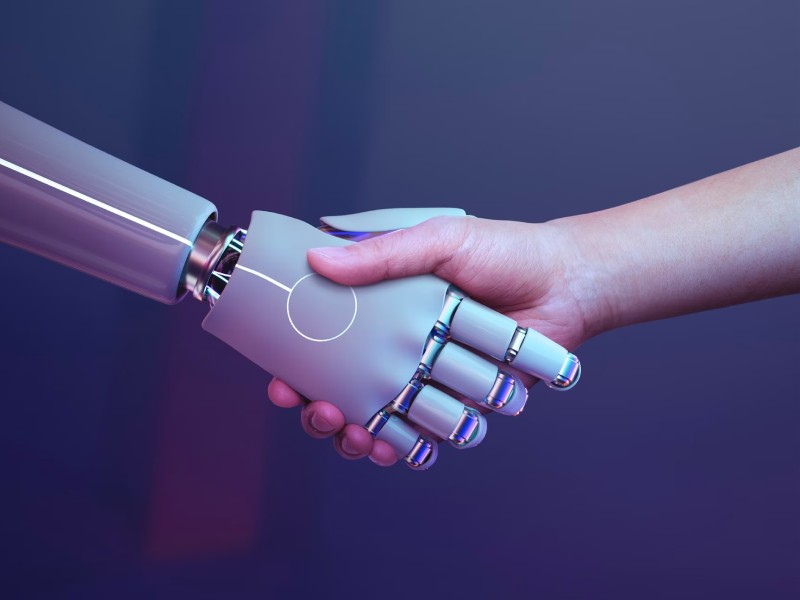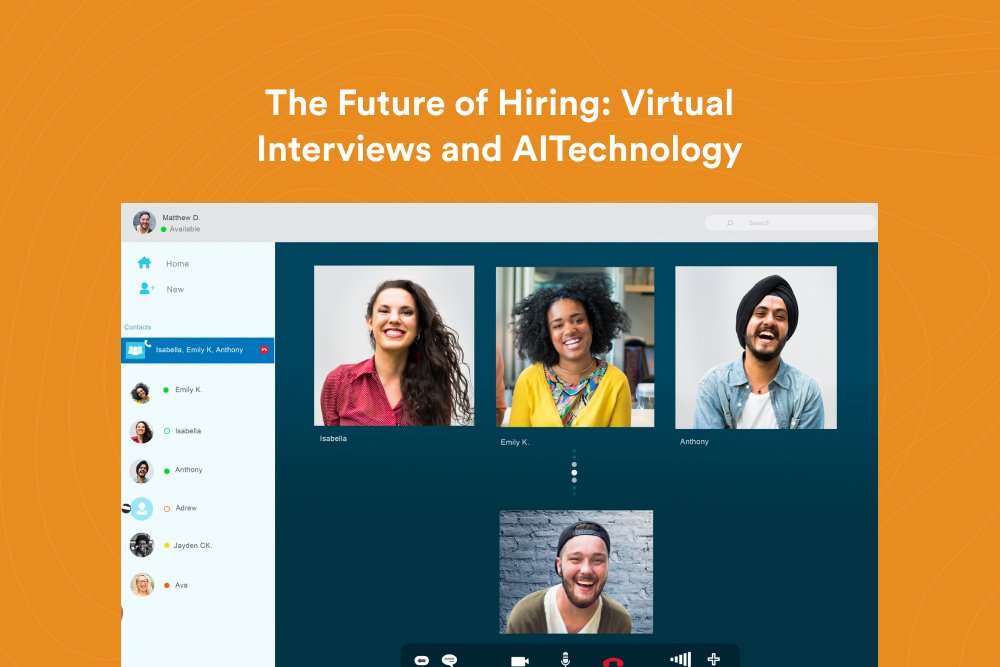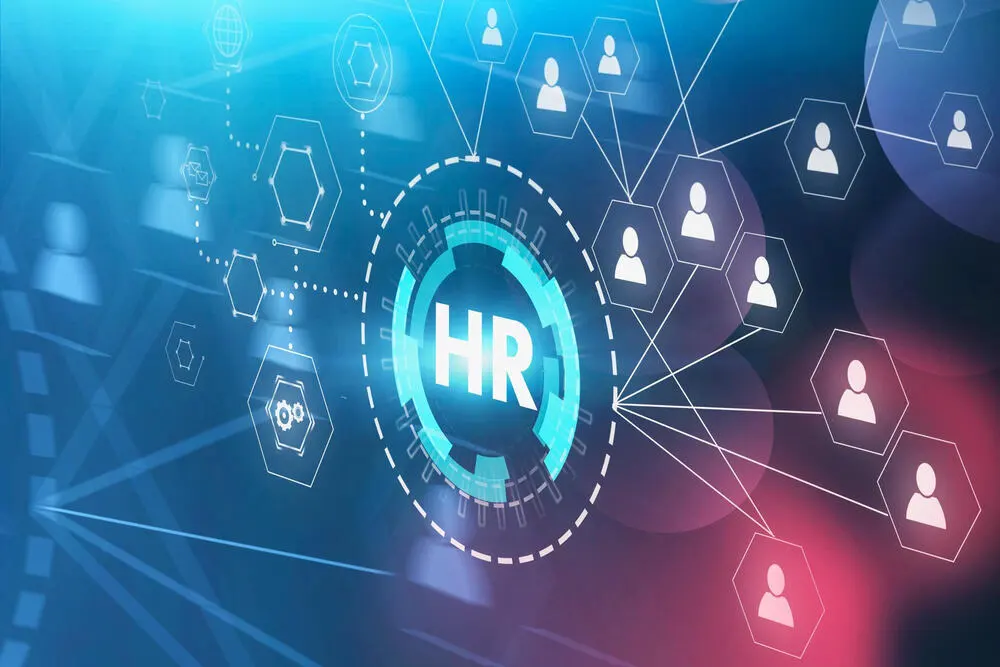In the rapidly evolving digital landscape, hiring practices are undergoing a remarkable transformation. Traditional interviews are being replaced by virtual interviews, and artificial intelligence (AI) is revolutionizing candidate assessment. This article delves into the shift in hiring practices, explores the benefits of virtual interviews, discusses the role of AI in modern hiring, and addresses the challenges associated with these innovations.
Understanding the Shift in Hiring Practices
The Standard Hiring Procedure
The time when all job interviews required in-person encounters is long past. Stacks of resumes, numerous rounds of face-to-face interviews, and protracted screening procedures were all part of the traditional hiring process. Although successful, this approach has its drawbacks. Candidates frequently find it difficult to schedule interviews during typical business hours, especially if they are already employed or live in a different time zone.
The Emergence of Virtual Interviews
Virtual interviews have emerged as a groundbreaking solution to these challenges. Employers are using video conferencing tools more frequently to connect with candidates all over the world. Virtual interviews allow for flexibility in scheduling and remove the geographical barriers that limited talent acquisition in the past. Candidates can reach out to potential employers from the comfort of their homes, saving money on travel and time away from the office.
Furthermore, virtual interviews have opened up new possibilities for remote work. As companies embrace the benefits of a distributed workforce, virtual interviews have become an essential tool for assessing candidates’ ability to thrive in remote environments. Employers can evaluate a candidate’s communication skills, adaptability, and technical proficiency through virtual interviews, providing a more comprehensive assessment of their suitability for remote positions.

The Role of AI in Modern Hiring
Alongside the rise of virtual interviews, AI technology has made its way into the recruitment process. AI is now being used to streamline hiring operations, saving time and resources for both employers and candidates. With AI-powered resume screening tools, employers can quickly filter through large volumes of resumes, identifying qualified candidates more efficiently. This expedites the hiring process and guarantees a fair and unbiased assessment of applications.
AI technology also plays a significant role in assessing candidates’ skills and qualifications. Through automated assessments and online tests, AI algorithms can analyze candidates’ responses, providing valuable insights into their abilities and potential fit for the role. This unbiased assessment aids companies in making better informed choices, lowering the possibility of bias, and raising the possibility of discovering the most qualified applicant.
Furthermore, AI-powered chatbots have revolutionized the candidate experience. These intelligent virtual assistants can engage with candidates, answering their questions, providing information about the company and the hiring process, and even conducting initial screenings. Chatbots enhance efficiency by handling routine inquiries, freeing up recruiters’ time to focus on more strategic tasks.
In conclusion, the shift in hiring practices towards virtual interviews and AI technology has brought numerous benefits to both employers and candidates. Virtual interviews offer convenience, flexibility, and the ability to assess remote work capabilities, while AI streamlines the hiring process, improves efficiency, and ensures fairness. In order to attract and keep top talent in today’s competitive job market, organizations must accept these developments as technology develops further and modify their hiring procedures accordingly.

The Benefits of Virtual Interviews
Cost-Effective Recruitment
Virtual interviews significantly reduce recruitment expenses. Employers no longer need to bear the costs of travel, accommodation, and meeting room rentals for candidates. By conducting interviews remotely, companies can allocate their resources more efficiently and invest in other areas of their organization.
Additionally, the cost savings from virtual interviews can be substantial. A study by the Society for Human Resource Management found that employing virtual interviews can help businesses save an average of $1,000 each applicant. This covers the price of travel, housing, and other connected charges. With these savings, organizations can reallocate funds to improve their recruitment strategies, invest in employee development programs, or enhance their overall business operations.
Global Reach and Diversity
Virtual interviews provide a unique opportunity to connect with talent from diverse geographic locations. Previously untapped talent pools are now accessible, leading to increased diversity in the workplace. Employers can expand their search beyond local communities and find the perfect match for their organization, regardless of location.
Moreover, virtual interviews break down geographical barriers and open up a world of possibilities. Companies today have access to individuals from many nations, cultures, and backgrounds, enabling their teams to benefit from a variety of viewpoints and experiences. In addition to fostering innovation and creativity, this greater diversity also improves the organization’s overall effectiveness and success.
Convenience and Flexibility
Virtual interviews offer unparalleled convenience and flexibility for both employers and candidates. Candidates can save time, money, and stress by not having to travel significant distances. Hiring managers can conduct interviews at their convenience, scheduling multiple meetings in a single day without the constraints of physical limitations.
Furthermore, virtual interviews provide flexibility in terms of scheduling. With candidates located in different time zones, virtual interviews allow for easier coordination and avoid the need for inconvenient early morning or late-night interviews. This flexibility not only benefits candidates but also enables employers to streamline their hiring process and make quicker decisions.
Another advantage of virtual interviews is the ability to easily record and review the interviews. Hiring managers can revisit the interviews at a later time, compare candidates, and make more informed decisions. When several parties are involved in the hiring process or a detailed review of candidates’ responses is required, this can be quite helpful.
In conclusion, virtual interviews offer numerous benefits to employers, including cost savings, access to a global talent pool, and increased convenience and flexibility. By embracing virtual interviews, companies can revolutionize their recruitment processes and attract top talent from around the world.
AI Technology in Recruitment
AI for Resume Screening
One of the most time-consuming aspects of recruitment is resume screening. AI algorithms can scan and analyze resumes at a significantly faster rate than humans, shortlisting candidates based on predefined criteria. By streamlining the hiring process, this AI-powered automation frees recruiters to concentrate on duties of the highest priority and quickly discover the most qualified prospects.
Furthermore, AI technology can go beyond simply shortlisting resumes. It can analyze the content of resumes in depth, identifying keywords and phrases that match the job requirements. This enables recruiters to swiftly identify applicants who have the precise knowledge and expertise required for the position. AI algorithms can even detect patterns and trends in resumes, helping recruiters identify candidates with unique or standout qualifications.

AI in Interview Scheduling and Communication
AI technology has also facilitated the scheduling of virtual interviews. Automated systems can suggest suitable interview time slots based on the availability of both parties, eliminating back-and-forth emails or calls. In addition to saving time, doing this makes the interview process run more smoothly and effectively.
Moreover, AI-powered chatbots have revolutionized the initial communication with candidates. These chatbots can engage with candidates in a conversational manner, answering frequently asked questions and providing relevant information about the company and the role. The chatbots can comprehend applicant questions and provide answers in a human-like manner thanks to natural language processing, giving each candidate a unique experience.
AI for Candidate Assessment
In traditional interviews, evaluating candidate responses can be subjective. AI technologies, however, provide a standardized and unbiased evaluation process. Through voice and facial analysis, AI algorithms can gauge various parameters such as tone, body language, and emotion, providing valuable insights into a candidate’s suitability for a specific role.
Furthermore, AI technologies can assess candidates beyond the interview stage. AI-powered exams, for instance, can be used to rate technical competences like problem-solving skills and coding proficiency. These assessments can provide objective measurements of a candidate’s capabilities, helping recruiters make informed decisions.
In conclusion, AI technology has transformed various aspects of the recruitment process. From resume screening to interview scheduling and candidate assessment, AI algorithms offer efficiency, objectivity, and valuable insights. AI is anticipated to play an even bigger role in recruitment as technology develops, empowering recruiters to make wise choices and identify the finest prospects for their organizations.
The Challenges and Concerns with Virtual Interviews and AI Technology
With various benefits, including ease and affordability, virtual interviews have grown in popularity in recent years.
One of the main challenges with virtual interviews is the potential for technical difficulties. Despite advancements in internet connectivity, unstable connections can still occur, leading to audio or video glitches that can disrupt the flow of the interview. Additionally, software malfunctions can further complicate the process. To mitigate these issues, employers and candidates must be prepared by having backup plans in place, such as alternative communication methods or rescheduling options.
Another concern with virtual interviews is the privacy and security of personal information. Candidates are required to grant access to their personal spaces, which can potentially compromise their privacy. Organizations must prioritize data protection by implementing stringent policies and investing in secure communication platforms. This ensures that sensitive information shared during the interview remains confidential and protected from unauthorized access.
Furthermore, the use of AI technology in virtual interviews introduces the possibility of bias. AI algorithms are only as unbiased as the data they are trained on. If the training data contains inherent biases, the AI system can perpetuate and amplify them, leading to unfair hiring practices. To address this concern, organizations must be cautious when training their AI systems, ensuring that the data used is diverse and representative of the population. Additionally, regular audits should be carried out to find and remove any biases that might have been unintentionally introduced.
In conclusion, while virtual interviews and AI technology offer many benefits, there are challenges and concerns that need to be addressed. By being prepared for technical difficulties, prioritizing privacy and security, and actively working to eliminate bias, organizations can ensure a fair and effective virtual interview process.
Conclusion
The future of hiring is undoubtedly evolving, with virtual interviews and AI technology at the forefront of this transformation. These innovations offer a range of benefits, from cost-effective recruitment to increased diversity and convenience. However, challenges such as technical difficulties, privacy concerns, and potential biases must be addressed to fully harness the potential of these advancements. By embracing the changing landscape of hiring, organizations can unlock new avenues for talent acquisition and pave the way for a more efficient and inclusive hiring ecosystem.










